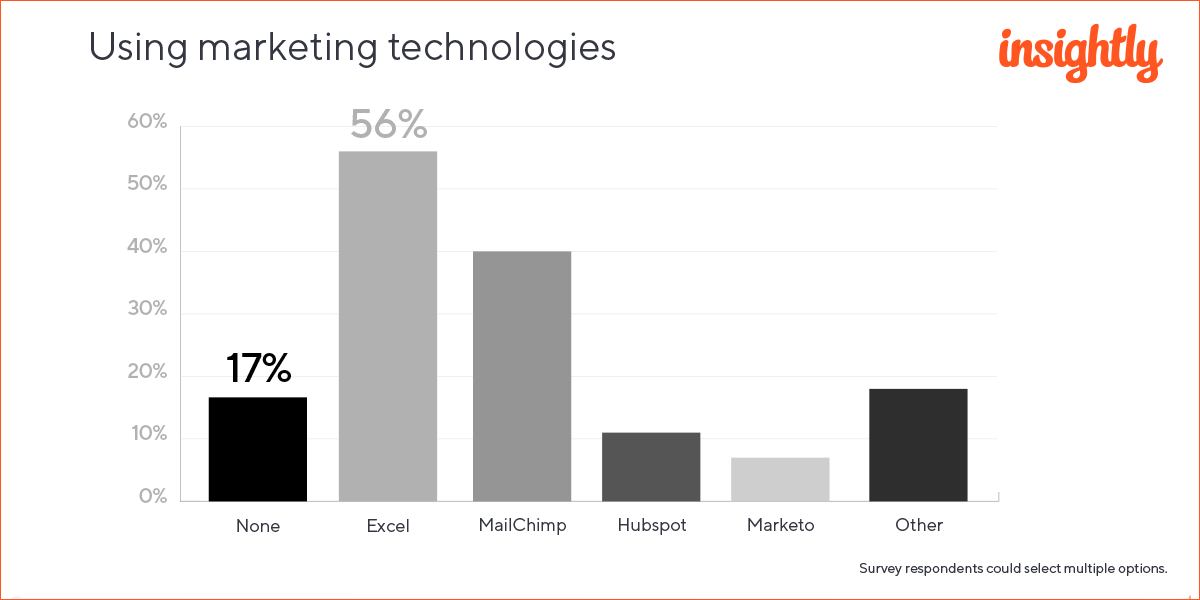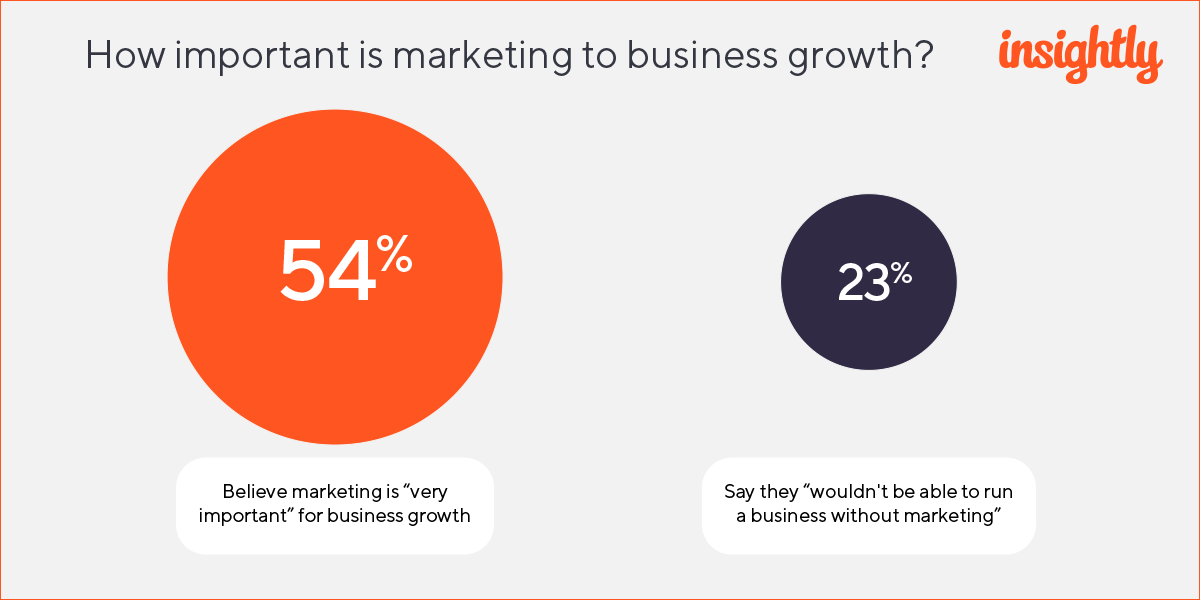Marketing
The state of marketing: a snapshot
A lot has been said and written about marketing — what is it, how to manage it, how to invest in it, and how to measure its impact on business growth. Thanks to frequent technological disruptions, marketing is in a constant flux of changes, forcing businesses to adjust and evolve in order to meet ever-growing expectations and succeed. How exactly are businesses adjusting to new demands and redefining their scope of marketing activities? Are they making the most out of new technologies? How are they investing in marketing and measuring its performance? To answer these and other questions, we recently reached out to Insightly customers who represent a wide range of industries and business types in the United States and abroad. Below are survey details and key findings.
Survey overview
In August 2019, more than 440 Insightly CRM customers — the majority of whom own or work at US-based companies with up to 500 employees — participated in an online survey on trends and challenges in marketing. Survey respondents included C-suite executives, mid-level managers, and CRM administrators from different industries, such as manufacturing, retail, consulting, education, healthcare, advertising and media, technology, and IT.
Key findings
How important is marketing to business growth?
More than half of the respondents find marketing “very important” to their business growth and nearly one in five report they couldn’t run their business without it.
So how does this recognition of the role of marketing translate into decision-making and operational management? Keep reading.
The scope of marketing activities
Even though the majority of survey respondents work in small teams (fewer than five people) with less than 10% of annual revenue allocated to marketing, the scope of marketing activities remains quite broad, covering digital marketing, advertising, PR, and events.
As expected, website management and email marketing are the most common marketing functions, followed by social media.
 Investments: people, budget, & technology
Investments: people, budget, & technology
People
In the survey, 48% of those who consider marketing “very important” and those who say they “couldn’t run business without it” (combined) report having only one or two dedicated marketers on their teams. Note that this number doesn’t include outside agencies — 37% of all survey respondents say they use contractors and external agencies.
Budget
More than half of all survey respondents report setting aside less than 10% of their annual business revenue for marketing, which is typical.
Interestingly, 44% of those who say marketing is “very important” or critical to their business growth, also report allocating less than 10% of their annual business revenue to marketing.
While most businesses in our survey are conservative with their marketing budgets, almost half of all respondents say they are spending more on marketing in 2019 compared with 2018, with the majority reporting up to 25% increase in year-over-year spend.

Technology
Considering the heavy focus on digital marketing and small team sizes, we were surprised to see a rather limited use of marketing technologies among survey respondents. Almost 17% of all respondents say they don’t use any technology at all and 56% use Excel to manage marketing.
 Sales & marketing alignment
Sales & marketing alignment
Keeping in mind that in today’s economy people expect consistent and customized experiences throughout all their vendor interactions, we asked our customers how well their marketing and sales efforts are aligned. Of all survey respondents, 46% say they are fully integrated and 11% say they are not integrated at all.
Of those who report not fully integrating their sales and marketing efforts, 42% say that it’s because it’s not a priority for them and 24% say they don’t have time to align.

Important to point out that 47% of respondents who state that marketing is “very important” to their business growth report full integration between their marketing and sales efforts.
This makes sense. According to Gartner, “The ‘single’ or ‘360-degree’ view of the customer requires combining all the operational master data pertaining to the customer — and often also to the product and service — from all data silos where it currently resides. Only by doing so can data and analytics leaders enable improved customer engagement across all customer-facing channels, including marketing, sales, customer service and digital commerce.”*
Measuring performance
As more companies focus on tracking their return on investment on every marketing dollar spent, we wanted to know how our customers measure marketing performance.
Surprisingly, more than one third of all respondents say they don’t measure marketing performance on a consistent basis.
Of those who say marketing is “very important” or crucial to their business growth, 46% report measuring marketing’s contribution to business revenue (deals closed, revenue per lead, etc.).

Survey takeaways
While our brief survey confirmed that the majority of businesses recognize the importance of marketing to their business growth, it also revealed inconsistencies in the ways businesses manage and invest in marketing and marketing technologies.
We also learned that one of the most common reasons why businesses don’t fully align their sales and marketing efforts is because they don’t consider it a priority.
There is an opportunity for companies to better invest in marketing technologies that would allow them to do more with less and focus on aligning their sales and marketing efforts. With a strong combination of a strategic sales and marketing alignment and scalable, integrated marketing technologies, businesses can not only create consistent brand experiences for their customers at every touchpoint, but also accurately measure the performance of all marketing activities and their impact on business growth.
Explore more content on the Insightly blog.
*Gartner, MDM Is Critical to Maximizing CRM and Customer Experience, Bill O’Kane, Michael Moran, December 2018
